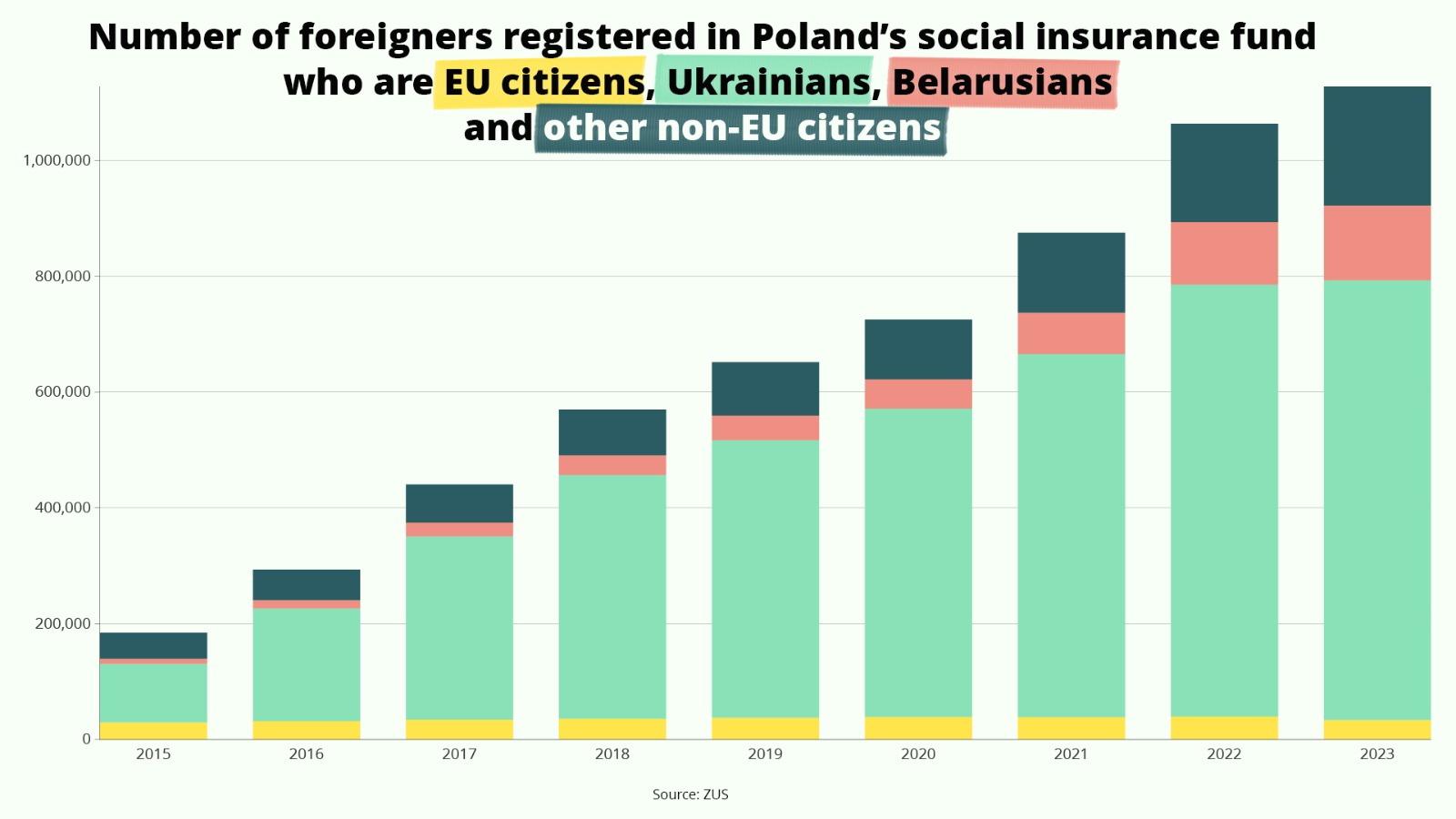The number of foreigners in Polish prisons has nearly doubled in less than four years amid unprecedented levels of immigration to Poland.
The number of foreign inmates has risen to 2,407, up from 1,267 at the end of 2020, reports the Rzeczpospolita daily, citing data from the justice ministry. By comparison, since 2020 the number of foreigners registered in Poland’s social insurance system has risen around 55.1%.
The largest numbers of foreign prisoners are Ukrainians (1,261), Georgians (330) and Belarusians (146), who are also Poland’s three largest immigrant groups. The most common reasons for their incarceration are traffic offences, robbery, affray and murder, reports Rzeczpospolita.
Poland had a prison population of 72,900 at the end of May this year, according to the prison service. That would mean foreign inmates represent around 3.3% of the total.
🇵🇱 W polskich więzieniach przebywa dziś dwa razy więcej zagranicznych skazanych niż w 2020 r. Najwięcej jest Ukraińców (1261), Gruzinów (330), Białorusinów (146). Odbywanie kary w Polsce nie przeraża ich tak jak odsiadka u siebie, na Ukrainie czy w Gruzji.https://t.co/BT2l7qHccH
— Adam Gwiazda (@delestoile) July 18, 2024
Paweł Moczydłowski, the former head of the Polish prison service, told the newspaper that, as the number of foreign prisoners is likely to further increase, it is important to bridge language barriers and be sensitive to, for example, cultural differences in diet in order to maintain security in Polish prisons.
“Certainly, this situation requires preparation,” he said. “It is better to make an effort to do so earlier than to be reliant on international conflict mitigation behind bars later.”
In his opinion, although Polish prisons are facing overcrowding, “the situation of convicts in Polish prisons is not bad” and “certainly much better than in [foreign inmates’] home countries”.
Sorry to interrupt your reading. The article continues below.

Notes from Poland is run by a small editorial team and published by an independent, non-profit foundation that is funded through donations from our readers. We cannot do what we do without your support.
A report published last year by Poland’s commissioner for human rights found, however, that at one Polish prison inmates have faced physical and mental torture, including beatings, suffocation and waterboarding. Prosecutors have launched an investigation into the claims.
In March this year, the new Polish government announced plans to reduce the number of inmates in Polish prisons by a quarter, or 20,000. Deputy justice minister Maria Ejchart said that sentencing policies under the previous government were too harsh, leading to prison overcrowding.
In recent years Poland has experienced the highest levels of immigration in its history, and also among the highest in Europe. In every year since 2017, Poland has awarded the EU’s highest number of first residence permits to immigrants from outside the bloc.
Poland has issued more first residence permits to non-EU immigrants than any other EU member state for the fifth year running.
It issued almost one million permits in 2021, more than twice as much as any other country and one third of the EU total https://t.co/dv26mHQfWt
— Notes from Poland 🇵🇱 (@notesfrompoland) August 11, 2022
Poland was also one of the primary destinations for refugees fleeing from Ukraine, with almost a million estimated to remain in the country.
Since 2020, the number of foreigners registered in Poland’s social insurance system (ZUS) has risen by over half, from around 725,000 to 1.13 million, meaning they make up almost 7% of all those in the system. The largest number, around two thirds, are from Ukraine, with around one tenth from Belarus.
ZUS notes that, given Poland’s worsening demographic situation, the country would need to attract almost two million immigrant workers over the next decade to maintain its current ratio of working-age population to retirees.


Main image credit: Mieczyslaw Michalak / Agencja Gazeta




Alicja Ptak is senior editor at Notes from Poland and a multimedia journalist. She previously worked for Reuters.
This post was originally published on this site be sure to check out more of their content.




